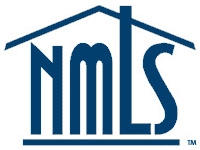Refinancing a home involves several steps, which I’ll outline below:
- Evaluate Your Current Mortgage: We help you review your current mortgage terms, interest rate, remaining balance, and monthly payments. Determine why you want to refinance (e.g., lower monthly payments, shorten the loan term, cash out equity).
- Check Your Credit Score: We will help you check your credit score will influence the interest rate you can qualify for. Ensure your credit report is accurate and try to improve your score if necessary.
- Let Us Shop Around for The Best Terms: We will research different lenders (banks, credit unions, mortgage brokers) to compare their rates, fees, and terms. It’s advisable to get quotes from several lenders to find the best deal.
- We Help You Choose a Loan Program: We will help you select a refinancing option that best suits your needs. Common choices include fixed-rate mortgages (same interest rate for the loan term) and adjustable-rate mortgages (rate may change after an initial period).
- We Will Help You Gather Documentation: Prepare documents such as income verification (pay stubs, tax returns), asset information (bank statements, investment accounts), and other financial records as required by the lender.
- Apply With. US for the Loan: Submit an application through our secure portal. Be prepared for us to contact you and conduct a thorough review of your financial situation, including a home appraisal. Our Free Refinance Advisor has been designed to help narrow down options based on your individual needs. It’s quick, it’s easy, and the more questions you answer – the more accurate your results. You’ll receive the Refinance information you need instantly without all the calls and emails! https://www.nsmn.com/refinance-advisor/
- Review and Negotiate: Once we receive offers from our lenders, we will carefully review the terms, interest rates, closing costs, and any prepayment penalties with you.
- Close the Loan: If you accept an offer, we will go through a closing process similar to when you initially bought the home. You’ll sign documents, pay closing costs (which typically include appraisal fees, title search fees, etc.), and potentially have a “right of rescission” period where you can cancel the refinance.
- Start Making Payments: After closing, your new lender will pay off your old mortgage. Going forward, you’ll make payments to your new lender according to the terms of your refinanced loan.
Before proceeding with refinancing, we will carefully help you consider the costs involved and ensure that the potential savings or benefits outweigh those costs. It can also be helpful to consult with a financial advisor or mortgage broker who can provide personalized advice based on your financial situation.
Our Free Refinance Advisor has been designed to help narrow down options based on your individual needs. It’s quick, it’s easy, and the more questions you answer – the more accurate your results. You’ll receive the Refinance information you need instantly without all the calls and emails! https://www.nsmn.com/refinance-advisor/














